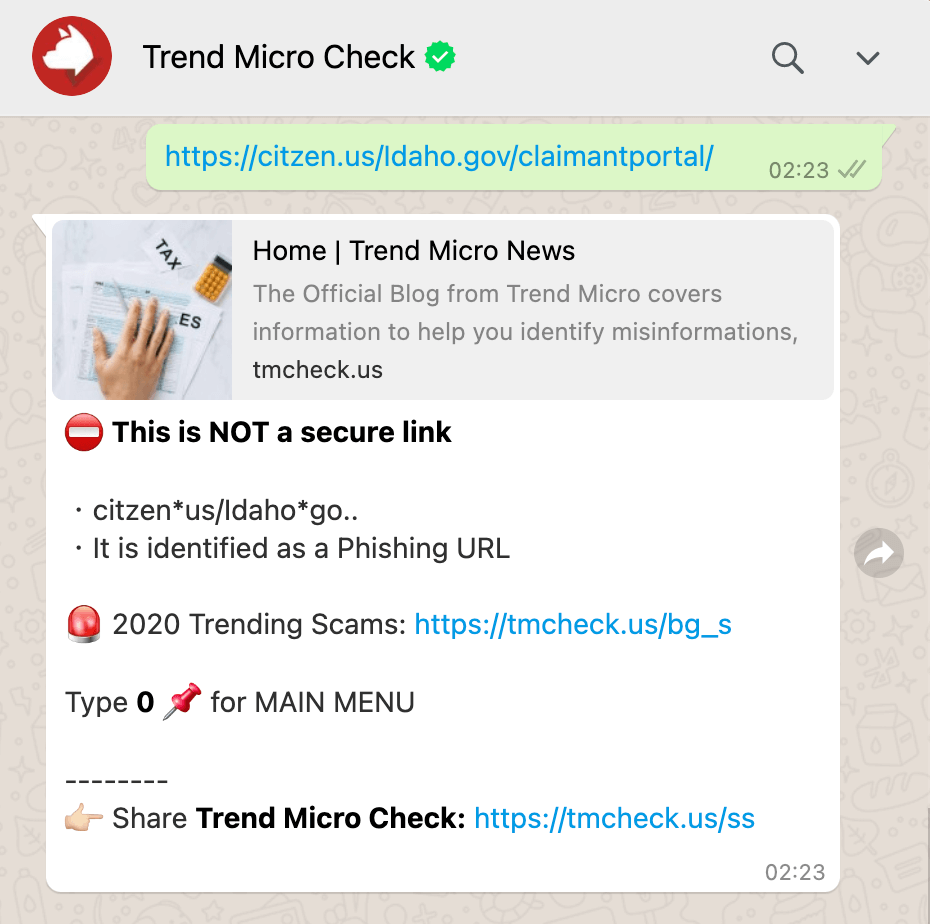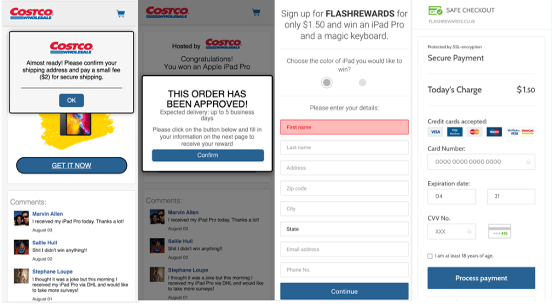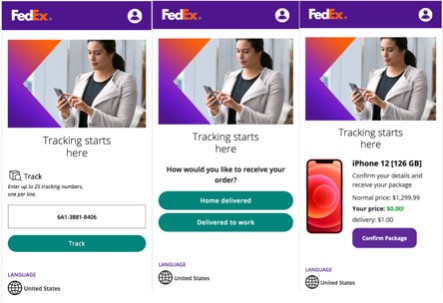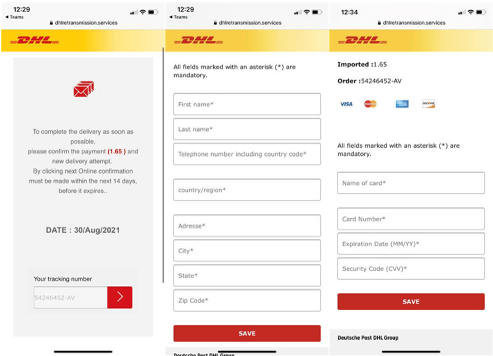Have you made a start on your holiday shopping? Looking for special offers on the upcoming shopping seasons like Black Friday and Cyber Monday? If you haven’t, you’re certainly not alone, but the scammers haven’t wasted any time trying to take your money!
According to the Better Business Bureau’s 2021 BBB Online Purchase Scams Report, online shopping scams continue to be a major risk to consumers. Only 2% of the victims who lost money via wire transfer were able to get their money back, and the median loss was $1,000! Besides, during the COVID-19 pandemic, with nationwide delays in shipping, fake shipping notification scams have been more successful than ever — 32% of all phishing victims were deceived by fake shipping notifications!
To help you stay safe this shopping season, we’ve compiled several of the most common online shopping scams and, most importantly, some safety tips to protect yourself. Let’s get started!
Holiday Online Shopping: Common Scams
1. Fake online shops
Tens of thousands of online shops appear every day, and some of them are designed to exploit you. Be cautious! As BBB reported, bogus online websites may provide products or services of low quality. In some cases, victims didn’t even receive the products they paid for.

Legitimate online shops have standard processes regarding refunds and disputes, but fake online shops don’t. There is no way to contact the sellers. What’s worse, victims could end up having their personal information sold on underground forums or the dark web!
Here are some common features of scammy online shops:
#1 Irresistible prices/too-good-to-be-true deals

#2 “Flash” sales to try to rush you into making decisions

#3 Purchase records popping out from nowhere

#4 Unusual payment methods
Scam online shopping websites tend to request payment using an electronic transfer, cryptocurrency, or prepaid card/gift card other than credit cards. Or, they may only offer cash on delivery (COD) payment — even if you did not order anything, scammers might send you ghost packages under COD. Anyway, if you pay and get the package, it is hard to reach out to the bogus sellers if the item is not what you thought it would be to claim a refund.
Use Trend Micro ScamCheck to check web addresses!
After you’ve pinned the ScamCheck browser extension in Chrome, it will block dangerous sites for you automatically:
Send links or screenshots of suspicious text messages to ScamCheck on WhatsApp for immediate scam detection.


2. Smishing/email phishing
How many text messages or emails do you receive every day? Scammers are good at sending spam messages with phishing links, trying to steal your sensitive credentials. Impersonating famous companies, they use different tactics to try to prompt you into clicking on the attached phishing links, including:
(1) Coupons/flash sales
“Costco has a surprise for You!” Scammers really love to attract your attention with fake promotional offers and exclusive campaigns:

They also use social media to spread scam sale messages:

(2) Shipment notification
“We got your package in storehouse:” Scammers also like to pose as delivery companies and send you fake delivery notifications. They tell you that you’ve missed a delivery and ask you to view details via the attached link:

What scammers want is your personal information. They direct you to phishing sites where they can record all your credentials, for example:
- Fake online survey pages
The links can lead to fake online survey pages that guarantee you a reward if you finish the survey. In the end, the page will instruct you to provide banking details like credit card numbers for the delivery of the gift:


- Fake login pages
The links also sometimes lead to fake login pages of the impersonated brands. You are told to log in to view delivery details, to change your password, to pay a delivery fee… and so on:

What can scammers do with your personal information? Well, they could take control of your bank account, transfer all your money out, or even use your information to commit identity theft!
3. E-skimming
E-skimming happens when an online shopping website is compromised. How? Hackers attack and install malware on an online shop, enabling the website to collect customers’ data, like credit card numbers or other financial details, when they make purchases. Similar to other phishing scams, the data will end up in scammers’ hands and be used for identity theft.
4. Pop-up ads
Ever been browsing the internet when some ads just pop up waving at you with wonderful promotional offers? Some of the ads are from scammers, leading you to scam websites:

Some Red Flags
Look for these red flags when you shop online. If any of these conditions apply, please be extra careful!
- Too-good-to-be-true deals
- The product page is flooded with lots of 5-star (but seemingly irrelevant) customer reviews.
- The seller insists on payments via wire transfer or cash apps and refuses to accept credit cards.
- The seller asks you to provide some unusually detailed personal information.
- There are lots of typos and questionable wordings on the web page.
- The online shop’s website address looks strange.
- There are no valid contact details on the site.
For more tips about spotting scammy online shops, click here.
Holiday Online Shopping: Safety Tips
- Shop only on legitimate online shops/shopping platforms.
- Avoid direct purchases on social platforms.
- Search for reviews and comments.
- Use trusted payment methods. If possible, use standard payment processing networks such as Visa and Mastercard for secured transactions.
- Don’t use unusual payment methods. If the sellerinsists on payment methods other than the ones listed on the shopping site or keeps taking you away from the online marketplace, be careful. Wire transfers or cash apps like Venmo don’t offer buyers’ protection!
- Never click links or attachments from unknown sources. Check if links are safe before you click using Trend Micro ScamCheck!
- Add an extra layer of protection to your device with Trend Micro Maximum Security! Its Web Threat Protection, Ransomware Protection, Anti-phishing, and Anti-spam Protection will help you combat scams and cyberattacks. Click the button below to give it a try:
Congratulations, now you’ve got ideas in mind on how to shop safely this holiday season! If you’ve found this article useful and/or interesting, please SHARE and help protect your family and friends!
